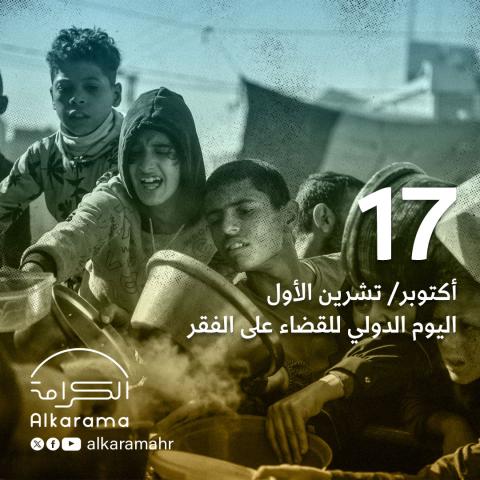
Resolution 47/196, adopted by the United Nations General Assembly on December 22, 1992, proclaimed October 17 as the International Day for the Eradication of Poverty. The purpose of this day is to draw attention to the need to respect inherent human dignity and social responsibility towards communities and individuals living in poverty, rather than the relentless pursuit of profit and gain at the expense of human beings.
Because many human rights are out of the reach of people living in extreme poverty, in 1998 the United Nations Commission on Human Rights created a mandate, the Special Rapporteur on extreme poverty and human rights, to give greater prominence to the plight of those living in extreme poverty and to highlight the human rights consequences of the systematic neglect to which they are subjected.
The United Nations developed a theme for the 2023 celebration based on first-hand evidence that people living in extreme poverty often work long and arduous hours in dangerous and unregulated conditions, yet are unable to earn enough to adequately support themselves and their families.
Alkarama believes that widespread poverty is not just an economic issue, but a multidimensional phenomenon that includes low-income levels, the inability to live in dignity, the lack of safe and fair working conditions, corruption, the monopolization of wealth by certain classes, and the deprivation of large sectors of the population, as is the case in many parts of the Arab world.
Alkarama is concerned that an estimated 7% of the world's population – about 575 million people – will be trapped in extreme poverty by 2030.
Alkarama recalls the objectives of Islamic law and international laws that urge the need for universal access to decent work and social protection as a means of upholding the human dignity of all people, emphasizing that decent work should improve people's living conditions, provide fair wages and safe working conditions, and recognize the intrinsic value and humanity of all workers.
Islam has presented the best forms of social justice, confronting and eradicating poverty by urging several things: Seeking livelihood, valuing work, paying a worker's wages without delay, forbidding cruelty to them, social solidarity and cooperation, spending with the intention of charity, charity to the poor and needy, sensitivity to their suffering, and feeding the needy, all of which are ignored by the brutal capitalism that rules the world today.
Political leaders, policy makers, official institutions, businesses and non-for-profit organizations must adopt human dignity as a guiding compass in all decision-making processes to ensure the advancement of fundamental human rights and social justice.
